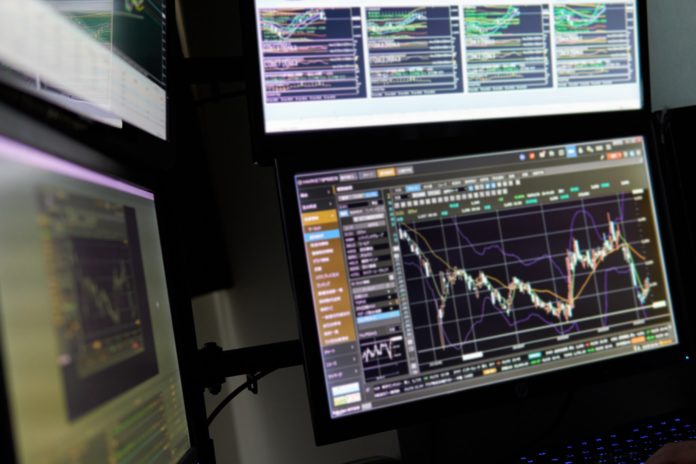
Trading Forex is one of the most challenging businesses in the world. It is even more difficult for novices to locate the appropriate materials to guide them through the system. The choice of a liquidity provider is one of the most critical choices a trader can make. Companies that offer trade implementation and settling solutions to financial institutions are known as liquidity providers. We’ll discuss liquidity in this article and some benefits of choosing a liquidity provider in Forex.
What is Liquidity, and Why Is It Important in Forex
Whenever we discuss liquidity in Forex trading, we’re talking about a market’s capacity to handle substantial operations without affecting the currency’s price. Basically, it refers to the level of competitive pressure that occurs at any given time for purchasing and selling. A currency is said to be more liquid whenever there is significant buying and selling pressure, and when there is less buying and selling pressure, it is said to be less liquid.
Price stability and transaction performance are the key determinants of liquidity in Forex trading. First of all, prices are more consistent in a liquid market. It guarantees that the price you see on your display when you execute an order to buy or sell a currency pair is the value you’ll receive when your trade is carried out. Rates can fluctuate in an illiquid market, making it challenging to predict a currency pair’s price in case you make an order.
Slippage happens whenever the price at which your trade is executed and the price you observed while placing the order on your monitor differ. Since many buyers and sellers are consistently prepared to execute at the current market price, slippage is less likely in a liquid market. On the other hand, a liquid market is one where deals are carried out swiftly and with minimal slippage.
The Different Types of Liquidity:
In the Forex market, there are three main types of liquidity: market, account, and asset liquidity.
The general level of market buying and selling momentum is referred to as market liquidity. The size of the market, trading activity, and bid/offer sizes are among the aspects that influence the market’s liquidity. All traders need market liquidity, but day traders and scalpers need it more than anybody else, which is due to the fact that many trading systems require placing trades with extremely close stop losses. Sometimes it could be really challenging to exit a bad trade immediately to prevent a sizable loss if the market is not sufficiently liquid.
The volume of purchasing and selling pressure in your account is referred to as account liquidity. Your account balance influences market liquidity, the number of active positions, and how much you leverage your trades.
The amount of buying and selling activity you may exert on the market without having to get your trades stopped by your broker depends on the liquidity of your account. You might have less account liquidity than a competitor with a more extensive account or who is using little margin if you have a small account and using a lot of margin.
The capability of an asset to be rapidly and painlessly turned into cash is known as asset liquidity. The liquidation asset value, the bid-ask spread, and the market volume of buyers and sellers all affect its liquidity.
Since it influences how quickly traders may turn their assets into profit, asset liquidity is the key for everyone. It could be challenging to sell an asset and prevent losses if it is not liquid. For instance, it could be challenging to locate a buyer prepared to pay the current value for an asset you own if it is not traded on a single exchange. This can force you to sell the stock for less money than you originally wanted to turn into cash.
What Are The Benefits of Using a Liquidity Provider in Forex Trading?
Using a liquidity provider when trading Forex has many advantages, such as:
Since they have access to a lot of capital and can trade in huge volumes, Forex liquidity providers guarantee that your transactions are fulfilled at the best pricing. As a result, they are less prone to be affected by changes in price driven by minor transactions.
The ability of liquidity providers to minimize the level of slippage you might experience is another advantage. The amount of your trade, the liquidity of the market, and the pace at which your transaction is completed are just a few of the variables that might contribute to slippage.
By offering their rates to trade against (a two-way quote), liquidity providers can help avoid slippage while rapidly completing your orders.
Utilizing a Forex liquidity provider can also help you increase the speed and dependability of your trades, which is yet another advantage. This is so they can trade in high numbers since they have a lot of capital. As a result, they are much less likely to be hit by changes in price brought on by smaller trades.
Final ThoughtsIn conclusion, all traders in the FX market must take liquidity into account. It could be tough to leave a trade quickly enough to prevent a sizable loss if the market is not sufficiently liquid. But, it could be simpler to complete trades fast and at the best rates if the market is liquid. By offering their prices for traders to trade against and swiftly fulfilling orders, liquidity providers can increase the market’s liquidity. They play a critical role in guaranteeing the proper operation of the FX market.
Image: Copyright: maposan
[newsletter_form lists="1"]











